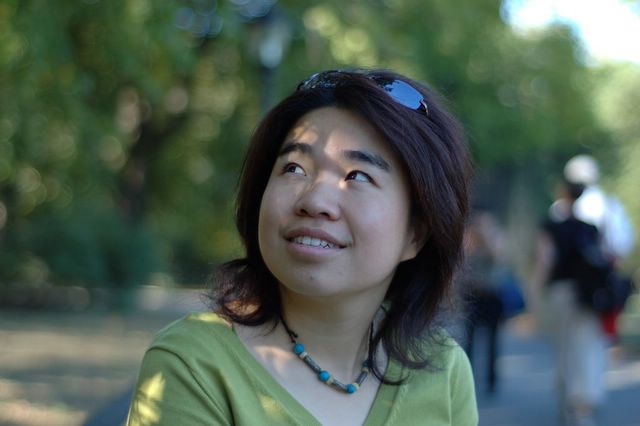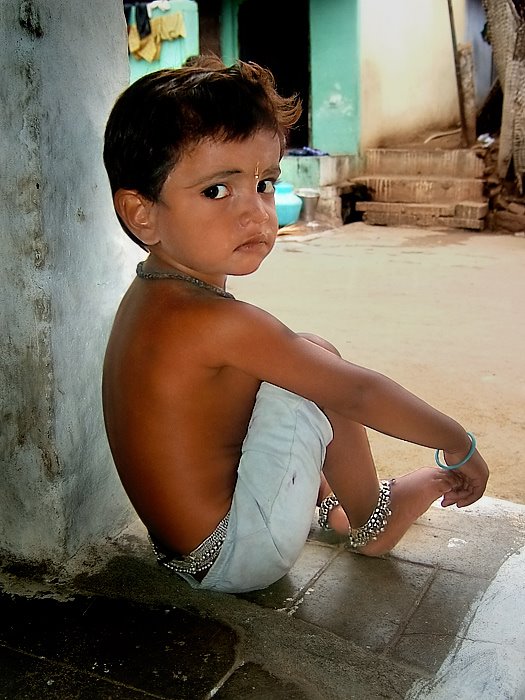2007年9月1日星期六
Move to NYU
2007年8月30日星期四
Learn about death
2007年8月29日星期三
China’s Environmental Crisis
2007年8月28日星期二
今天偶然
今天偶然看到荞麦的blog,和前几天发现的G点一样,都是很有趣的女生写作。G点好吊书袋(http://www2.tianyablog.com/blogger/view_blog.asp?BlogName=geegeegee),借历史上的名人名言名事来抒发对当下礼崩乐坏的社会的不满。比如,她借重耳《被迫当官》说官场的险恶,借宋襄公《太有追求也不好》说明榜样的力量是危险的,借鲁昭公讲《吹黑哨的下场》,借周公论证《做人不能太厚道》,借季札说明为何要《坚决做一个党外人士》,实在是有趣的驴唇不对马嘴的解读。
荞麦麦写些生活琐事,编辑部里的故事,非常有趣。比如,
“医生的安慰真是不同凡响啊!!DR安慰我说:世上有个P大的事啊!死个人也不过5分钟,昨天我们医院一个老奶奶去做穿刺,结果穿到了大动脉,就挂掉了。之前还笑嘻嘻的,能说能笑的,5分钟就挂了。所以这个世界上都没什么大不了的事情,死个人都这么容易。
我一个劲儿点头表示赞同。但心里其实在想:生死事小,丢脸事大嘛!
!! 再说前天,我们登了个关于“东方神起”的稿子,结果接到一帮小LOLI的抗议骚扰电话。到了昨天晚上,竟然又有一个四川小LOLI打来电话,小菜受不了了,吼道:你怎么现在才打电话来?稿子昨天就登了,就有一堆人打电话过来了,你竟然现在才打,你是不是真的喜欢“东方神起”啊?你怎么对得起你的五只哥哥啊?你赶紧好好反省一下!!
小LOLI:………………(然后就精神崩溃地挂了电话……) ”
她最近介绍的一部香港电影也不错。
“《性工作者十日谈》。终于看了这部凶器同学推荐的电影。还不错。我以前挺喜欢邓健泓的,很可爱,笑咪咪的,他竟然在这部戏里演一只鸭,深情且悲情,竟然演得很不错!惊诧。这部戏里最纯情的一个角色竟然是个人妖!竟然很讨人喜欢!当然啦,这部戏最重要的就是去看台词啦!
最中意的台词:妈的,我一出道就想做一个健康快乐的Happy鸡。七年来,我从不赌,不养小白脸。我不做不戴套的生意。我他妈的也不抽烟,不喝酒,不吸毒。我他妈的也从来不闹心情沮丧。谁做鸡做得有我这么意志坚强啊?他妈的,我干了7年。他妈的7成男人都是打软棍的,他妈的,那些臭男人自己硬不起来,就说我没鸡味儿,他妈的我这么专业,谁说我没鸡味? 还有一句:我他妈的卖身还不够贱啊?还要卖笑? ”
根据新浪影音介绍“欢场姊妹花患难相扶持、鸭店男妓与易装人妖相依恋、舞厅妈妈生遇上同志大丈夫情海翻波、北姑勤奋向上衣锦还乡、女大学生锲而不舍争取娼权,还有一楼一凤、企街等不同性工作者的遭遇拼凑而成故事,以十日的时间绘出夜总会行业的夕阳之歌。 这群性工作者,跟你与我一样,会遇到工作不顺意、感情挫折,有血有肉有理想,讲专业、讲尊严。可是,因为他们的工作涉及“性”,便不为世俗所接受,成为边缘一族,再加上时代变迁的冲击,这群性工作者应如何自处? 这出电影将带你进入性工作者的世界,以平实却具戏剧性的手法,感动而不煽情的内容,跟你大谈特谈,论尽行内百态。”这还不够煽情?
说到煽情,今天写论文的“致谢”部分(ACKNOWLEDGEMENTS)。绞尽脑汁啊,终于在网上发现现成的中国留美博士写的模版。每句都可以抄袭,就是下面的比较难,“感谢我的太太……在我撰写论文期间,她基本上是一个Weekday single-mom and a full-time scientist”。哥们,这是多么幸福的生活啊!有人替你烫衣服、煮面条、生孩子、挣生活费,求着你写论文。看不腻味死你!
我的联想受到刺激,开始捉摸该把谁放进我的致谢感言里。这个工作的难度不亚于酝酿奥斯卡颁奖的发言诶!首先感谢导师和委员会的各位老师,感谢他们不吝赐教,勇于帮我改正论文中不可胜数的语法错误。
其次,感谢把我领到学术研究这条歪道上的各位学者、老师、同学、朋友,名次部分先后,以拼音字母位列。然后,感谢八杆子都打不着的学会、基金会、研究所和大学为我毫无价值的研究提供的奖学金。特别注明,没有他们的支持,这样的垃圾是不会产生的(This research would not have been possible without the generous financial support from XXX)。
最后,非常令人感动地,感谢了我的父母、家庭、亲友、在北京和纽约的朋友,因为是他们“guided me to make meaning out of my doctoral study as a pilgrimage to the infinite and charming intellectual world”。
够拽吧!我也这么觉得。
2007年8月27日星期一
断魂

2007年8月26日星期日
想
想翻译一首Akhmatova的诗;
shit, 里面都是我不认识的英文;
这简直就不是一本像样的俄罗斯诗集;
怎么会有这么多拗口的动词、名词和形容词?
太多的文字从来都是交流的敌人;
初恋的情人话多;
热恋的情人无语;
喜欢桑格格的短歌;
她的短句子们像是万花筒;
每一次摇晃都会产生更新奇的意象;
而且;
我们都是这样地热爱夏天;
 她的《反光》 如是说;
她的《反光》 如是说;
我面前的这些;
花、草、人、虫、车、楼、路、猫、汽水、蛋糕;
你们好;
求求你们;
用你们骄傲吝啬的大脑;
记得我吧;
我是一闪而过的反光;
我暂时有活的血液;
我会死;
而你们将一直一直的存在;
与其谈论我死后的时间;
不如现在赐给我一个;
温柔的目光;
我贪婪地迎合你们的每一个律动;
内心是不舍、怨恨和热爱
What’s up, China?

New York Times worried about
“Chinese cities often seem wrapped in a toxic gray shroud. Only 1 percent of the country’s 560 million city dwellers breathe air considered safe by the European Union.
Environmental woes that might be considered catastrophic in some countries can seem commonplace in
At least two leading environmental organizers have been prosecuted in recent weeks, and several others have received sharp warnings to tone down their criticism of local officials. One reason the authorities have cited: the need for social stability before the 2008 Olympics, once viewed as an opportunity for
The article is critical enough and does not offer too much a solution. It argues that
DAVID BARBOZA reports that local government in Du Jiang Yan will build 8 museums and a public museum for contemporary Chinese artists by Oct 2008. The city government hand picked eight of the most soldable artists in
“For years their work could not be exhibited in
Zhang Xiaogang is one of eight artists who have been offered their own museums as contemporary art flourishes in
It has offered to give eight contemporary artists, all under 60, their own personal museums to operate. The group includes some of
In a country with no major museum of contemporary art — not even in
But in recent years
If the artists choose to display their own works, the museums will have an enviable collection. Prices for art from many of them have skyrocketed on the auction market. Individual pieces by Zhang Xiaogang and Mr. Yue, for example, have sold for more than $2 million.”
分裂
昨天忘了一件大事,伤害了一个好朋友。早上,站在花店门口,不知道应该怎样才能够向她道歉。最后选了三朵向日葵,八月的花朵,恳求原谅的花朵,希望你能原谅我。
最近精神有点恍惚,不见了两年的一个人突然跑出来,好像没事儿人似的说要见面,然后又像水汽一样蒸发了。昨晚回来的时候,从皇后区大桥上看曼哈顿,水气旺盛,整个中城都笼罩在雾里。偶尔有一两座高楼的尖顶从雾中闪现出来,好像是海上的浮动灯塔。曼哈顿宛若一座浮城,在没有尽头的空间中移动。
我们从66街穿过中央公园,擦着儿童动物园的边儿上过去,我在心里纳闷,狮子睡了吗? 猴子们睡了吗?海象睡了吗?59街那边的灯火在天际线上蔓延,车子无声地穿过一座又一座桥洞,把中城的风景分割成一格一格的,好像是慢放的电影画面。这种潮湿、炎热的夏夜,带着上个世纪20年代奢华的余味,暧昧而诱人,好像我们马上就要开着车子去参加Joseph Moncure March的史诗The Wild Party所描述的那样疯狂的夜宴。
今天早晨,从六点钟开始就睡不着了。每隔半个小时醒来一次,最后不得不强迫自己起床、刷牙、吃早饭,然后等着朋友来帮我搬家。朋友开着车,他的GPS系统操着不紧不慢的澳大利亚口音的英语,不断地说着,turn left on Broaadway。嘿,口音比我还早。早晨在邮局生的一肚子闷气一扫而光。
7点钟的时候去体育馆游泳。一进去就下了一大跳,到处都没有人。我换了衣服进游泳池,游泳池四周的灯光都黑着,水面上闪着暗蓝的光。我吓了一跳,跑到楼上的女更衣室里洗澡。这里也没有一个人。我走进公共浴室,听到更衣室那边有人唱歌,但是没有一个人过来洗澡。我的汗毛都竖起来了。这些情节简直就是一部完美的恐怖片。吃晚饭的时候,我把这个故事讲个朋友听,她觉得我应该花点时间,好好写一部体育馆惊魂记。可不是,在一个没有人的体育馆里到处碰到被用不同方式谋杀的人,这个真够刺激的。
我们不知道怎么的开始讨论《香水》这本小说和根据此书所拍摄的电影。影片里面那个疯狂的小子绝望地渴望爱和被爱,在他身上是人类性格的分裂—一方面是对于未知的追求,另一方面是对于美的毁灭。他想从短暂易逝的美中提炼出永恒的美。其实他忘了人生的根本原则,美是感觉而不是皮相,这一点和爱一样,都是可遇而不可求的。不顾一切的去追求,即违背个人的天命。违逆自己的天命不会导向梦寐以求的成功,相反地,是一个虚妄的人的毁灭。

















